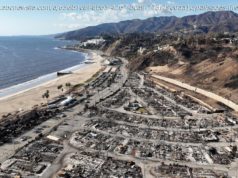Dozens of lawsuits have been filed challenging the Trump administration’s policies.
Topline
A federal appeals court Monday upheld a ruling ordering the Trump administration to rehire fired probationary staffers at six agencies, the latest in a string of court rulings against President Donald Trump and cost-cutting czar Elon Musk.Key Facts
The 9th Circuit Court of Appeals upheld a lower court’s ruling, which blocked the Trump administration’s mass firings of probationary staffers and ordered the government to rehire terminated employees at the Departments of Defense, Veterans Affairs, Energy, Treasury and Agriculture.
The panel of appeals court judges opposed the Trump administration’s claims that throwing out that order and letting the government continue to fire employees while the litigation moves forward would be an “immediate return to the status quo,” ruling it would instead “disrupt the status quo and turn it on its head.”
Plaintiffs, including Democratic attorneys general, federal workers, labor unions, nonprofits and other groups have brought dozens of lawsuits challenging the Trump administration’s activities in the weeks since Trump’s inauguration, as Republicans’ control of the White House and Congress has made legal action Democrats’ primary way of challenging Trump’s policies.
Most of the lawsuits are still playing out in court, though a number of temporary rulings have been issued that either block policies while litigation moves forward, or allow various orders to stay in place until there’s a more lasting ruling.
Permanent rulings have only been issued so far in two cases—concerning two specific federal workers’ firings—but those rulings could also be overturned by higher courts on appeal.
That means all litigation is still subject to change: Judges who have ruled in the Trump administration’s favor so far could still issue future rulings that block their policies, and vice versa, and rulings both for and against the government are likely to be appealed to higher courts. Where Has Trump Won In Court?
USAID Staffers: Trump-appointed Judge Carl Nichols ruled Feb. 21 the Trump administration can place workers at USAID on leave, reversing a previous ruling he made against the government after the administration submitted a filing assuring workers on leave will continue to receive government protections. He then refused to issue an order blocking the Trump administration from terminating USAID contractors in a hearing March 6.
Firing Hampton Dellinger: The D.C. appeals court on March 5 halted a lower court order preventing the Trump administration from terminating Dellinger, who has questioned Trump’s mass firings in his role atop the Office of Special Counsel, a watchdog agency. The ruling effectively allows Dellinger to be removed from his job while the case works its way through the appeal process, and Dellinger accepted the court’s ruling Thursday and said he would abide by it, suggesting he will not seek further appeals. Dellinger’s case was the first to make it to the Supreme Court, which temporarily kept him in his job last month, ruling 7-2 not to overrule a court order.
NYC FEMA Funds: A federal judge denied New York City’s request to get back $80 million in FEMA funds the Trump administration rescinded even after they had already been disbursed, multiple outlets report, ruling during a hearing March 5 that there’s no immediate need to grant the city’s request now while the litigation is still playing out.
CIA Employees: CIA Director John Ratcliffe can fire employees who served in roles related to diversity, equity and inclusion, Judge Anthony Trenga ruled at a hearing Thursday according to multiple reports, after the employees sued to block their firing—with The New York Times reporting the judge said he thinks based on “basic fairness” the employees shouldn’t have been dismissed, but Ratcliffe has authority to fire them under the law.
Associated Press: Judge Trevor McFadden let the Trump administration keep blocking Associated Press reporters from major White House events—at least for now—denying a request by the AP to restore its journalists’ access after the Trump administration punished the news service for directing journalists to still use the term “Gulf of Mexico,” after Trump ordered the body of water to be renamed the “Gulf of America.”
Elon Musk’s Authority: Judge Tanya Chutkan denied Democratic attorneys general’s efforts to block Musk and DOGE from accessing federal data or make personnel decisions—as the states argue Musk is an “agent of chaos” who doesn’t have the authority to make widespread government decisions—though Chutkan expressed concern in her Feb. 18 ruling about Musk’s authority and suggested she could rule against him in the future.
DOGE Access to Labor Data: Judge John Bates twice denied labor unions’ request to block DOGE from accessing Labor Department data, at least while the litigation moves forward, first ruling the plaintiffs didn’t have standing, and then ruling Feb. 14 the plaintiffs did not sufficiently show their claims are likely to succeed—even as Bates acknowledged his “serious concerns about the privacy concerns raised by this case.”
Federal Worker Buyouts: Judge George O’Toole let a deadline expire for federal workers to take a buyout offer, ruling Feb. 12 the labor unions challenging the buyout plan didn’t have standing to bring the case, after previously extending the deadline several times.
Federal Employee Emails: Judge Randolph Daniel Moss denied an effort by federal workers to bar the government from sending mass emails to employees using an allegedly unsecured email server, finding on Feb. 17 the plaintiffs were unlikely to show they had standing to bring the case. Where Has Trump Lost In Court?
Some Federal Worker Firings: The 9th Circuit Court of Appeals on March 17 upheld a ruling by Judge William Alsup, who reversed the Trump administration’s mass firings of probationary employees. Alsup ordered the government on March 13 to rehire terminated employees at the Departments of Defense, Veterans Affairs, Energy, Treasury and Agriculture, because he ruled the directive ordering the employees’ firing was unlawful. Alsup’s ruling came after Beryl Howell ruled Trump’s firing of National Labor Relations Board member Gwynne Wilcox was a “blatant violation” of federal law in an order March 6, after Judge Rudolph Contreras, an Obama appointee, issued a permanent injunction keeping Cathy Harris, who serves on the Merit Systems Protection Board that protects federal workers, in her role after Trump terminated her. The judge ruled Trump’s firing violated federal law requiring officials to only be removed for “malfeasance.”
Alien Enemies Act: Judge James Boasberg blocked Trump’s invocation of the Alien Enemies Act of 1798 to deport Venezuelan nationals believed to have a connection to criminal organization Tren de Aragua, issuing an order March 15 that immediately halted deportations under the order, including directing the administration to turn flights around containing the affected migrants.






